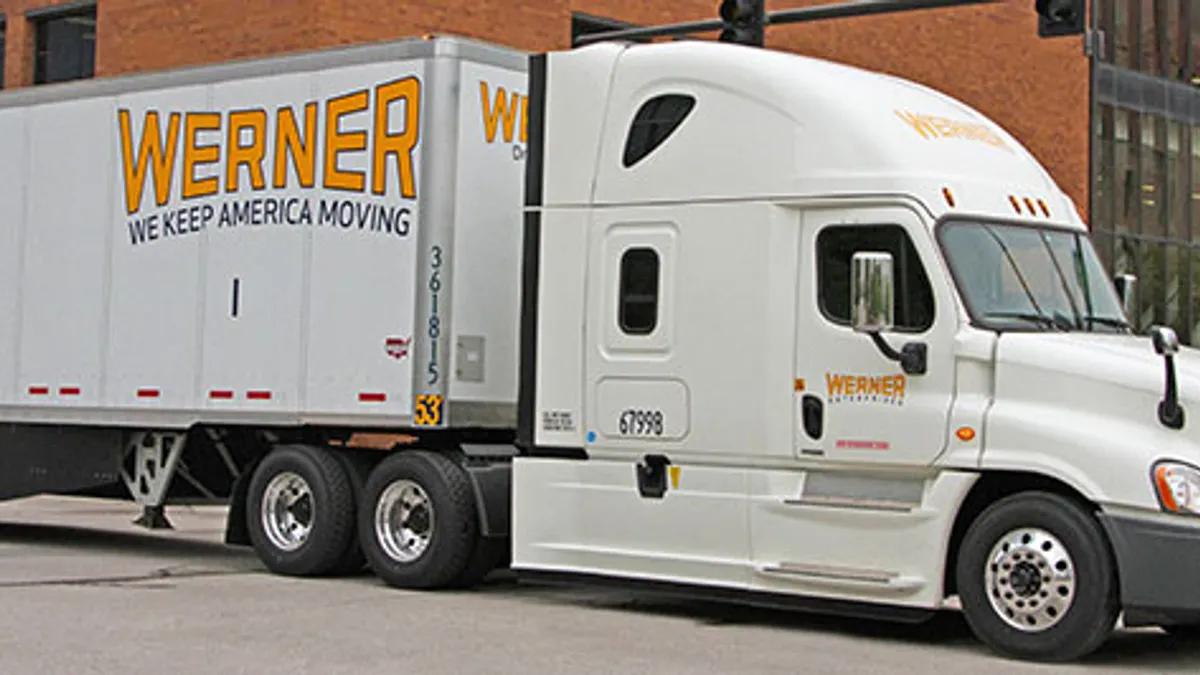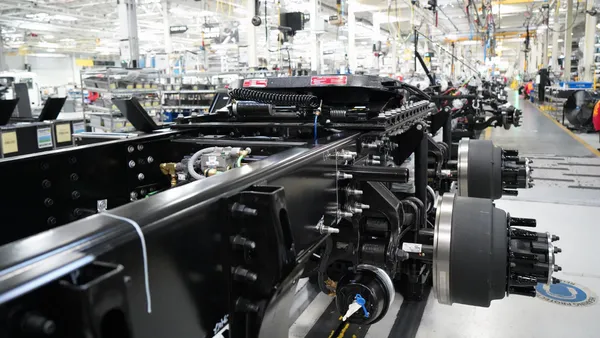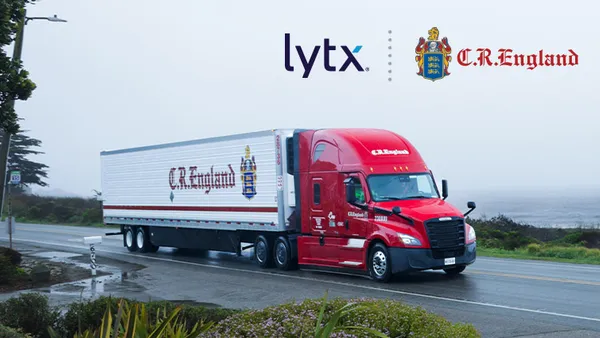Dive Brief:
- Werner expects strong TL freight demand to last into 2022, President and CEO Derek Leathers said on an earnings call last week. "At the same time as the freight demand pump has been primed, the supply of truckload capacity is constrained due to a tight driver market," he said.
- Inventory restocking, which kept trucking rates up and capacity tight in Q1, is expected to continue for the next few quarters, Leathers said. CFO John Steele said the winter storm in Texas, port delays and the Suez Canal blockage further challenged restocking efforts in Q1. Inventories are low outside of retail, such as lumber, steel, housing, semiconductors and new trucks, he said.
- Steele noted "it's really difficult to predict" when the scramble to restock will end. But Leathers said he said he is confident rates will stay elevated, and spot "will far outpace" contract rates, in the meantime.
Dive Insight:
Transport leaders project freight demand to remain elevated, but constraints on equipment and staffing, so far, prevent an oversupply of trucks and drivers in the market. Werner is investing in equipment and focusing on driver recruitment to keep up with expected restocking demand.
Werner acknowledged the current state of the driver shortage, which other executives have noted is worse than it has been in decades. Leathers said drivers prefer dedicated lanes, which is where the majority (64% by the end of Q1) of Werner's TL trucks are located.
"Our retention efforts are paying off, and we are holding the line on turnover," Leathers said. "In addition to attractive driver compensation, Werner strives to be the truckload employer of choice, by providing a modern truck and trailer fleet with the latest safety equipment and technology, a wide variety of driving positions including daily and weekly home-time opportunities, and an industry-leading driver training program."
When licensing agencies slowed and shut down during the pandemic, it clogged the talent pipeline of drivers. But as the economy reopens, the bottleneck should become less severe. Werner plans to open four training locations by Q3, Leathers said, bringing the network up to 18 locations.
Once drivers become available, they may be drawn to Werner's relatively newer equipment. A WorkHound survey showed equipment is important to drivers, behind only pay and people. That means newer, advanced equipment can boost recruitment as well as retention.
Werner's trucks have an average age of two years, Leathers said, while trailers have an average age of four years. In 2018, the average Class 8 truck was 12.8 years old, according to an IHS Markit analysis cited by NTEA, a work truck industry association.
And Werner's trucks all have advanced collision-mitigation systems, emissions and fuel-mileage technology, automated manual transmissions, forward-facing cameras and tablet-based telematics.
The company expects to spend up to $300 million in capital expenditures to maintain the low fleet age and grow the dedicated fleet in the range of 1%-3% this year, Leathers said.
When it comes to capital allocation, equipment is first priority, Steele said. But facilities, which also contribute to driver satisfaction, also received a cash injection. Werner opened a terminal in Lake City, Florida, and a new terminals is set to open in Lehigh Valley, Pennsylvania, in June. Both replace smaller leased facilities.
Werner factors retention into other decisions it makes, too. When winter weather gripped about half the country in icy conditions, the carrier decided to idle some 1,000 trucks in a "very aggressive" approach to safety, Steele said during a Barclays webcast in February.
Leathers said Werner paid drivers for that downtime. "It's no fault of their own that those storms hit," he said. He called the resulting fewer miles per truck and driver pay a "double whammy," but he said the decision was to stand by the drivers.
And Werner expects to increase driver pay — an expense that will affect contract rates, which Leather's said are "tracking favorably" as the customer pipeline remains strong. Carriers across the industry have been upping driver pay for new and payrolled drivers, and doing so has become a necessary action to take to remain competitive.
"One of the reasons we think about dedicated, we think about engineered, we think about a lot of the things we're doing is really [taking] a multi-year out view on building jobs that are sustainable ... with an eye toward retention at all costs," Leathers said. "Because, ultimately, that's how we provide our customers the capacity they need."











